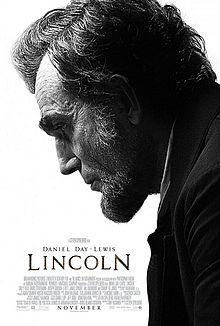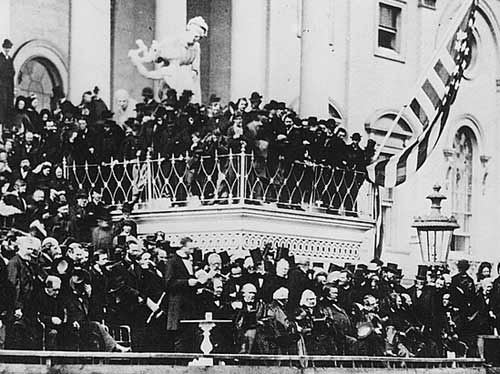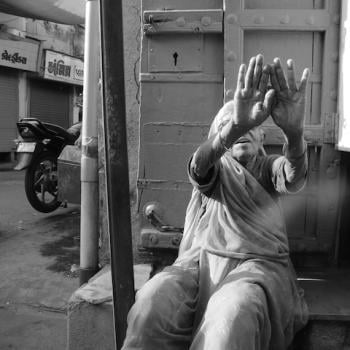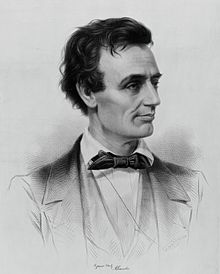 Here’s how much I love the new film Lincoln: after watching it, I told my sons that if they want to remain members of our family, they must see it. I’m not being totally unreasonable–I told them they could wait until Christmas break if they didn’t have time for it right away–but honestly, this is a non-negotiable for me.
Here’s how much I love the new film Lincoln: after watching it, I told my sons that if they want to remain members of our family, they must see it. I’m not being totally unreasonable–I told them they could wait until Christmas break if they didn’t have time for it right away–but honestly, this is a non-negotiable for me.
I know some of you have already seen it and those of you who haven’t might not want to read any spoilers (here’s a big one: there’s a shooting at the end). It’s a brilliant movie–beautifully filmed and masterfully acted, incredibly evocative of a pivotal time in the nation’s history. Who knew the political intrigues of the House of Representatives could be so riveting?
For me Daniel Day-Lewis’s portrayal of Lincoln is the main reason to see the movie. I have minor quibbles (it’s hard to make Day-Lewis as homely as Lincoln, for example, even with the best make-up artists in Hollywood). But in general, his Abraham is a wonder, by turns endearing, fierce, conniving, gentle, grieving, steely and humorous. I remember reading in a review that by the time the filming of the movie was over, director Steven Spielberg felt that he had a new best friend in Lincoln. That affection shines through in Day-Lewis’s portrayal of the president, which is loving without being sentimental. He spent a year preparing for the role and immersing himself in a study of Lincoln, and it shows.
A friend who saw the movie said that for him, its heart is a conversation between Lincoln and Thaddeus Stevens, a powerful member of the House of Representatives who is a passionate supporter of the 13th Amendment that will abolish slavery. They are discussing tactics, Stevens arguing that Lincoln doesn’t go far enough in his support of equal rights and that he needs to follow his “true north.” Lincoln gently reminds him that while a compass needle shows you where you need to go, it doesn’t tell you how to get there, and that sometimes you can get stuck in a swamp if you take the direct route. The journey is often winding and circuitous, he says, and if you can’t make that journey, what good is it to know where true north is? Lincoln’s life is an illustration of that principle of patience and endurance.
The film has already been called the best film about American politics that’s ever been made, illustrating the compromises and deal-making that goes on behind the scenes (like sausage making, it’s best not observed too closely). But it’s also an idealistic film, one that says that reconciliation is possible even after terrible conflict. At one point Lincoln tells General Ulysses S. Grant that after the surrender of the Confederacy, he is to let all the rebel soldiers return home. There is to be no retribution, he says. Lincoln also exhibited that generosity of spirit in his political discourse, over and over again reaching out to his enemies to work for the common good of the Republic, refusing to demonize his opponents even when sorely tried. We could all take a lesson from Lincoln in this regard, particularly the politicians who work for us in Washington, D.C.

At the end of the movie, I knew what was going to happen but I couldn’t stop myself from grieving Lincoln’s death as if it were a surprise. The last scene, fittingly, reprises the end of Lincoln’s Second Inaugural Address, perhaps the greatest of all his speeches. I read it again this morning, the scenes from last night’s movie still playing in my mind.
Fondly do we hope, fervently do we pray, that this mighty scourge of war may speedily pass away. Yet, if God wills that it continue until all the wealth piled by the bondsman’s two hundred and fifty years of unrequited toil shall be sunk, and until every drop of blood drawn with the lash shall be paid by another drawn with the sword, as was said three thousand years ago, so still it must be said “the judgments of the Lord are true and righteous altogether.”
With malice toward none, with charity for all, with firmness in the right as God gives us to see the right, let us strive on to finish the work we are in, to bind up the nation’s wounds, to care for him who shall have borne the battle and for his widow and his orphan, to do all which may achieve and cherish a just and lasting peace among ourselves and with all nations.














